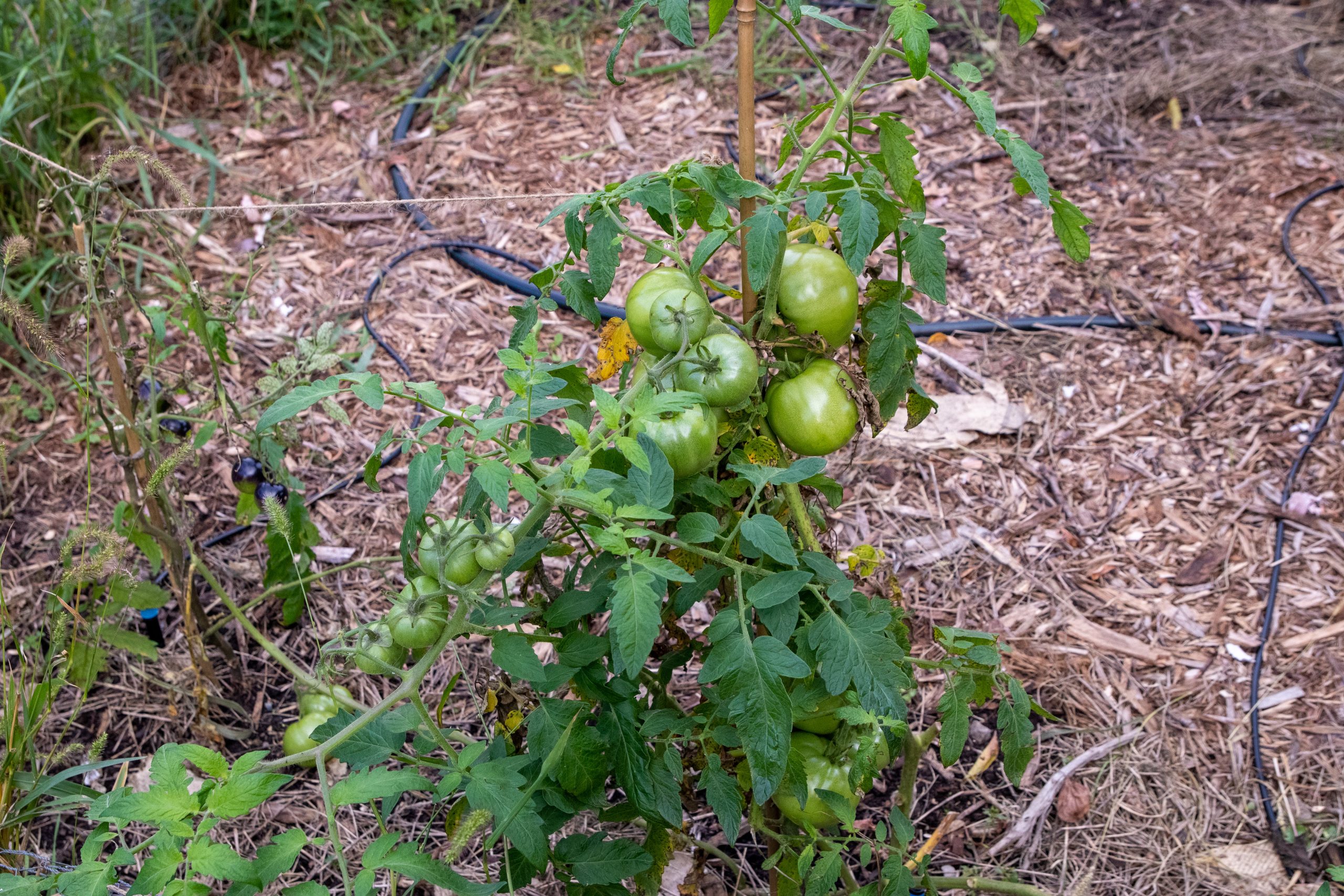SLUG was created in 2010 by a group of students as a place for the Lawrence and Appleton communities. The initial goal was loosely divided into three sections: student garden beds, community garden beds and research plots. Original workers planted peach, apple and pear trees. Some of those former students now run a local farm called Rising Sands, which sold 80 pounds of SLUG peaches at the farmers market this summer.
Over time, SLUG’s goals and results shifted. The garden became more student-focused with occasional research. After COVID, the garden fell into disrepair. The shed became disorganized and overrun by mice, invasive buckthorn and burdock took over and existing structures rotted. Those original fruit trees stood bare for several years as they fought off fungal infections and suffered from a lack of pollinators. But still it was SLUG, a Lawrence University institution. “SLUG will never disappear,” we thought. But still, any institution, no matter how large or beloved, can become at risk of ending. The invasive weeds and trash piles began to hide the heart and soul of this campus.
We encountered issues common for any small organic garden. Peas died, tomatoes bushed out and trellises fell over. Burdock returned and Buckthorn pushed back. But our cantaloupe ripened, and squash bloomed. Grass sown and mowed, new structures built and outreach amplified. More students and community members began stopping by, with a curiosity that made hot mornings under the August sun worth every burn.
The student garden managers collectively put in over 1,000 hours during the summer. We sold $1600 of produce at the farmstand and to Bon Appetit. Over $2,000 of LUCC money was used by advisors to improve the aesthetics and functions of the garden. Student workers put in personal money for their individual projects, such as art, canning and preservation. This was not done out of pure internal motivation or volunteerism, but by a drive to protect what we love.
The current iteration of SLUG was not a one-man job. Bella Goland combined her passion for art with pollinator research. Will Brenneman juggled his Anthropology LU-RF position with garden maintenance. I focused on crop restoration and fermentation, along with community connections. Countless other students on campus this summer volunteered their time to weed, water and harvest. Community members worked on their personal plots and contributed to ongoing projects in the garden.
The work is not done. Board members have plans to deeply integrate the garden with the club house and re-inspire students to get dirty. SLUG House has returned to a cooperative format with 12 members, buying local foodstuffs from Produce with a Purpose, Rising Sands, Voyageurs, and of course, our garden. We are planning for years of SLUG to come. Connect with me if you’re interested in visiting the heart of Lawrence University.

